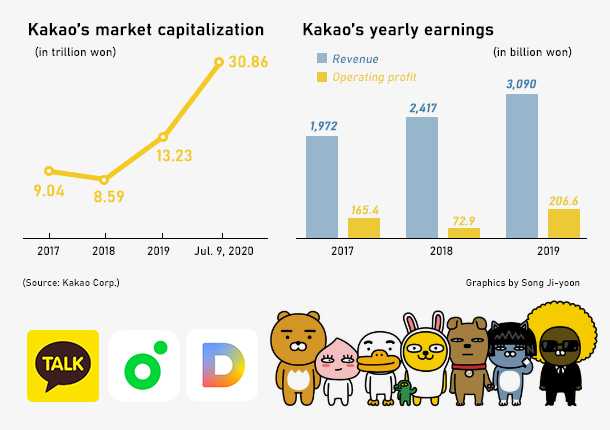As costs rise and competition intensifies, both VW and Germany face a critical crossroads.
- Volkswagen’s stock is at a 14-year low, reflecting deep issues within the company and the German economy.
- Germany’s economy is stagnating, with GDP growth nearly flat since 2019 and expected to contract again.
- Volkswagen’s struggles are linked to high operational costs, reliance on China, and a failure to adapt to the electric vehicle market.
- The company has canceled a long-standing agreement to avoid layoffs, indicating a shift in its cost management strategy.
- Germany’s manufacturing sector is heavily reliant on China, which has become a significant challenge due to rising competition and tariffs.
- High labor costs in Germany are impacting Volkswagen’s profit margins compared to competitors like Toyota.
- Despite significant R&D spending, Volkswagen is lagging in electric vehicle technology compared to rivals like Tesla.
Volkswagen is currently facing its most significant crisis in years, with its stock trading at levels not seen in 14 years. This downturn is not just a reflection of the carmaker’s struggles but also highlights the broader economic challenges facing Germany. Experts suggest that the issues plaguing Volkswagen are indicative of the difficulties within the German economy itself, which has been slow to adapt to a rapidly changing global landscape. nnSales have been tepid, foreign competition is mounting, and Volkswagen’s ambitious electric vehicle strategy has not resonated with consumers, leading to a significant drop in stock value. Recently, the company made headlines by canceling a long-standing agreement that prevented layoffs, signaling a shift in its approach to managing costs. nnGermany’s economy is stagnating, with GDP growth nearly flat since 2019 and a contraction of 0.3% last year. Economists predict further declines, which is concerning given that Volkswagen is Germany’s largest employer and a key player in the country’s automotive industry, contributing about 5% to the GDP. nnThe intertwined fates of Volkswagen and the German economy stem from several shared challenges: a heavy reliance on China, high operational costs, and a decline in technological leadership. Manufacturing accounts for a significant portion of Germany’s GDP, and the country’s focus on capital goods and automobiles has historically been a strength. However, recent geopolitical tensions and the rise of Chinese competitors have turned this once favorable relationship into a liability. nnVolkswagen’s operations in China, which were once highly profitable, have seen a downturn, with expectations of significantly reduced profits from joint ventures. The company is now competing against local giants like BYD, which has overtaken Volkswagen as the best-selling car brand in China. nnHigh costs in Germany further complicate matters. Volkswagen’s operational structure is heavily weighted towards its home country, where labor costs are among the highest in the West. This has resulted in thinner profit margins compared to competitors like Toyota, which has a more balanced operational footprint. nnDespite investing heavily in research and development—more than any other European company—Volkswagen has struggled to keep pace with advancements in electric vehicle technology, particularly in battery and software development. This has led to a loss of competitive edge in a market increasingly dominated by companies like Tesla. nnIn summary, both Volkswagen and Germany are at a critical juncture, facing the need for significant changes to adapt to a rapidly evolving global economy. Without these changes, the future looks uncertain for both the carmaker and the country.·
Factuality Level: 7
Factuality Justification: The article provides a detailed analysis of Volkswagen’s current challenges and their connection to the broader German economy. It includes quotes from experts and relevant statistics, which lend credibility. However, it could be seen as somewhat biased in its framing of the issues, and there are moments of redundancy in discussing the economic context. Overall, it presents a mostly factual account but with some subjective interpretations.·
Noise Level: 8
Noise Justification: The article provides a thorough analysis of Volkswagen’s challenges and their connection to the broader German economy, highlighting systemic issues and long-term trends. It includes evidence and expert opinions, while holding powerful entities accountable. However, it could benefit from more actionable insights.·
Public Companies: Volkswagen (VOW3), SAP (SAP), Stellantis (STLA), Renault (RNO), Toyota (7203), BYD (1211)
Private Companies: Thyssenkrupp
Key People: Moritz Schularick (President of the Kiel Institute for the World Economy), Dirk Schumacher (Europe economist at Natixis), Ulrich Ackermann (Head of foreign trade at Germany’s VDMA), Ferdinand Dudenhöffer (Director of Germany’s Center Automotive Research), Clemens Fuest (President of the IFO economic institute in Munich), Mike Tyndall (HSBC analyst)
Financial Relevance: Yes
Financial Markets Impacted: Volkswagen’s stock is trading at 14-year lows, indicating significant challenges for the company and potential impacts on the German economy, which relies heavily on the automotive sector.
Financial Rating Justification: The article discusses Volkswagen’s financial struggles, its impact on the German economy, and the broader implications for financial markets, particularly in relation to the automotive industry and international competition.·
Presence Of Extreme Event: No
Nature Of Extreme Event: No
Impact Rating Of The Extreme Event: No
Extreme Rating Justification: The article discusses Volkswagen’s financial struggles and the economic challenges facing Germany, but it does not report on an extreme event that occurred in the last 48 hours.·
Move Size: No market move size mentioned.
Sector: All
Direction: Down
Magnitude: Large
Affected Instruments: Stocks
 www.wsj.com
www.wsj.com 




